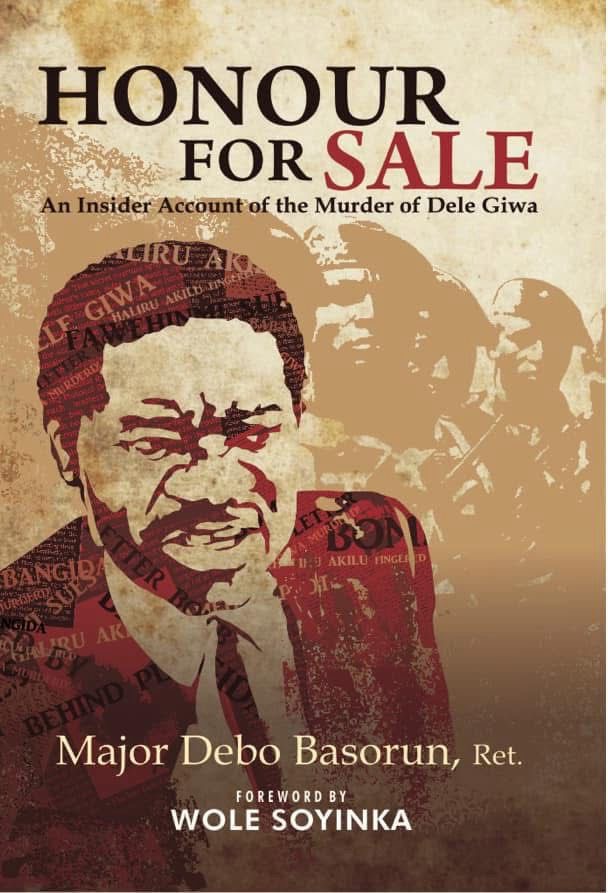 Major Debo Bashorun’s memoir, Honor Not for Sale, is a piercing, unapologetic recollection of Nigeria’s tumultuous military era, one that lays bare the internal power struggles, betrayals, and moral dilemmas that shaped the country’s governance. As a former press secretary to General Ibrahim Badamasi Babangida (IBB), Bashorun offers a firsthand account of the workings of the military elite, exposing the intricate webs of deception, suppression, and calculated maneuvering that defined the era. His book is not just an autobiography; it is a political exposé, a bold declaration that seeks to correct historical narratives often written by the victors.
Major Debo Bashorun’s memoir, Honor Not for Sale, is a piercing, unapologetic recollection of Nigeria’s tumultuous military era, one that lays bare the internal power struggles, betrayals, and moral dilemmas that shaped the country’s governance. As a former press secretary to General Ibrahim Badamasi Babangida (IBB), Bashorun offers a firsthand account of the workings of the military elite, exposing the intricate webs of deception, suppression, and calculated maneuvering that defined the era. His book is not just an autobiography; it is a political exposé, a bold declaration that seeks to correct historical narratives often written by the victors.
At the heart of Honor Not for Sale is the unresolved and contentious case of Dele Giwa’s assassination, a moment in Nigeria’s history that continues to haunt its democratic evolution. Bashorun, who had a close view of the power dynamics within IBB’s administration, provides insights into how the military junta wielded information as a weapon, controlling narratives, silencing dissent, and ensuring that the truth remained buried under layers of official secrecy. His portrayal of IBB is that of a leader who mastered the art of strategic ambiguity, operating within the shadows and ensuring loyalty through a delicate balance of coercion and patronage.
Bashorun’s memoir indirectly challenges IBB’s own narrative of his time in power. Babangida, in his public statements and writings, has often portrayed himself as a misunderstood leader, one whose actions were taken in the interest of national stability. His reflections, though scarce, tend to absolve his administration of many of the darker allegations that surround it. In contrast, Honor Not for Sale suggests that IBB’s regime was defined by an unwillingness to be held accountable, a tendency to prioritize survival over justice, and a deep reliance on a network of military loyalists who ensured that state power remained unchallenged.
Where IBB’s own accounts paint a picture of a pragmatic leader navigating Nigeria’s volatile political landscape, Bashorun’s perspective reveals the casualties of that pragmatism—journalists like Dele Giwa, suppressed voices within the military, and a citizenry forced to endure a government that thrived on secrecy. The tension between these two narratives underscores a fundamental question in Nigerian history: Was Babangida a tactical genius who prevented the country from descending into chaos, or was he a leader whose reluctance to embrace democratic values deepened Nigeria’s political dysfunction?
The key takeaway from Bashorun’s memoir is the high cost of unchecked power. He illustrates how, in the absence of accountability, even well-intentioned governance can morph into tyranny. His book serves as both a historical document and a warning, reminding Nigerians that the ghosts of past political decisions continue to shape the country’s present. In the battle between honor and survival, Honor Not for Sale argues that too many in power chose the latter.
By : Jide Adesina
1safrika.com
February, 2025
All rights reserved

